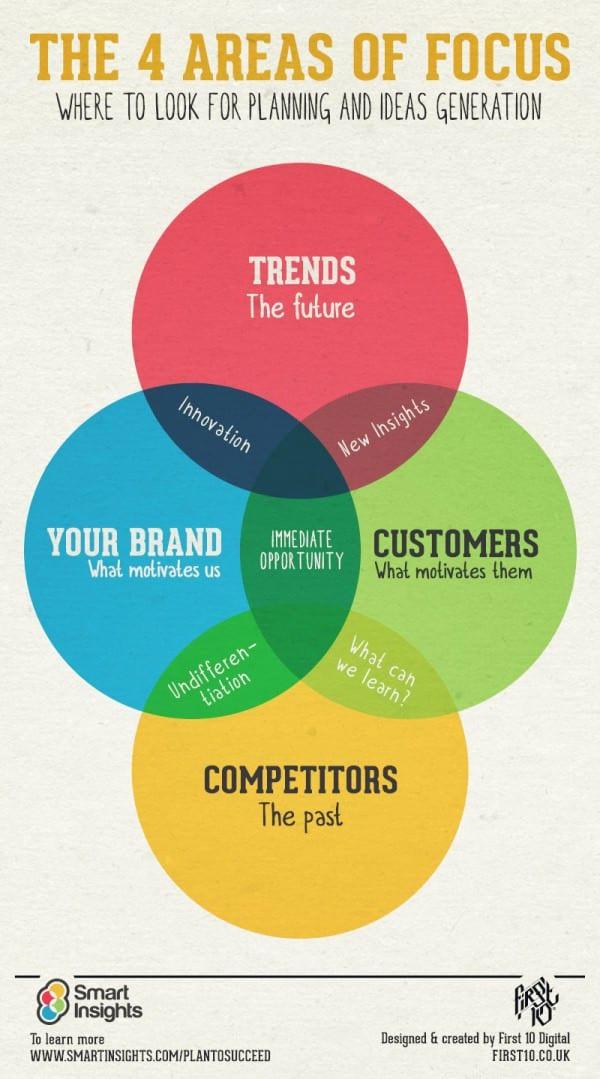Welcome to our latest blog post,where we delve into the insights shared in the YouTube video “.” In this enlightening session, the conversation pivots away from traditional notions of a static business plan, highlighting the dynamic nature of planning in the ever-evolving landscape of marketing and sales.
We’ll explore key takeaways,including the importance of creating and harvesting value,as well as the crucial questions that every entrepreneur should consider when facing potential investors. It’s not merely about having a polished business plan—it’s about adopting a flexible mindset that allows for growth and adaptation.
Join us as we summarize the core principles discussed and the wisdom imparted by guest speaker Bob Jones, a seasoned entrepreneur and trusted mentor.Whether you’re a budding entrepreneur or a seasoned professional, the insights from this session promise to offer valuable perspectives that can shape your journey to success.
Table of Contents
- Understanding the Dynamic Nature of Business Planning
- The Importance of Value Creation and Harvesting
- Key Questions Investors Consider for Business Success
- Time Management: The Most Valuable Resource of All
- Q&A
- In Retrospect
Understanding the Dynamic Nature of Business Planning

In the realm of business planning, it is essential to embrace its fluidity rather than treating it as a fixed blueprint. dynamic planning recognizes that the market landscape is constantly shifting, influenced by various factors such as consumer behavior, technological advances, and economic trends. As such, businesses must cultivate a flexible mindset that allows them to adapt their plans in real time. This adaptability not only ensures a relevant strategic direction but also fosters resilience against unforeseen challenges. Key considerations to keep in mind include:
- Evaluating and re-evaluating your objectives.
- Involving a diverse team to gain multiple perspectives.
- Regularly assessing market conditions and customer needs.
The act of planning should focus on creating and harvesting value, asking crucial questions that guide decision-making and strategy refinement. Investors often seek clarity on several critical points: Why is it essential now? Why this team? addressing these inquiries not only increases the viability of your venture but also enhances team cohesion and purpose. If answers remain unsatisfactory,it is vital to iterate your approach and,perhaps more importantly,your questioning. An effective strategy involves continuous learning and adjustment, ensuring that time—the most valuable resource— is spent wisely. Below is a simplified table to illustrate these pivotal planning questions:
| Question | Purpose |
|---|---|
| Why this? | Assess the relevance of the business idea. |
| Why now? | Evaluate timing for market entry. |
| Why this team? | Identify strengths and competencies of your team. |
| Why won’t it work? | Anticipate potential challenges and pitfalls. |
The Importance of Value Creation and Harvesting

Creating value and harvesting it effectively are crucial components in the journey of any entrepreneurial venture. This process begins with understanding that value creation is not merely a theoretical construct; it is indeed about delivering tangible benefits to customers and stakeholders. An entrepreneur’s ability to identify and articulate the unique value they offer will significantly influence their success in attracting investors and retaining customers.As discussed, it’s essential to establish goals that drive innovation and differentiation in the market, making it imperative to answer fundamental questions: Why is this significant? Why now? These questions help frame the context and set a timeframe for value creation, ensuring that efforts are relevant and timely.
once value is created, the focus shifts to value harvesting, which entails effectively capturing the benefits derived from these innovations. This step can be challenging as it requires not only strong execution but also a deep understanding of market dynamics and customer needs. The insights from seasoned entrepreneurs highlight that the most precious resource in this journey is time; therefore, strategic planning and agility are vital.By consistently assessing their approaches, entrepreneurs can refine their strategies, align them with evolving market demands, and ultimately, enhance their chances of sustainable success. Investing time in planning, coupled with adaptability, can lead to fruitful outcomes in their entrepreneurial pursuits.
Key Questions investors Consider for Business Success

Investors are not just seeking viable business ideas; they are hunting for compelling narratives that underline the significance and timing of these ventures. Why this? This question drives to the core of the business proposition, compelling entrepreneurs to articulate the unique value their offerings deliver. Why now? Timing can be the difference between a flourishing enterprise and a missed prospect. The current market conditions, technological advancements, or socio-economic shifts often create windows of opportunity that can skyrocket a business’s prospects. Investors also want reassurance that the founding team possesses the experience and skills to navigate this landscape effectively, which brings us to the crucial question of why this team? The right mix of talent and motivation can be a game changer, and helping investors understand this dynamic relationship is key to fostering their confidence in the venture.
Moreover, anticipating the why won’t it work? question allows entrepreneurs to identify potential pitfalls and craft strategies to mitigate risks. Addressing this skepticism not only demonstrates preparedness but also enhances the overall business plan’s credibility. As the discussion unfolds,it becomes evident that these questions serve as a robust framework for refining business strategies and ensuring alignment with the organization’s goals. Time, being the most limited resource, necessitates that entrepreneurs invest their efforts in answering these questions thoroughly. In doing so, they not only prove their concept worthy of investment but also create a pathway to sustainable growth and value creation.
Time management: The Most Valuable Resource of All
In the relentless pursuit of success, the true currency at our disposal is not merely financial resources, but rather the invaluable commodity of time. Effective time management can significantly influence our ability to create and harvest value within any venture. Acknowledging that planning is a dynamic process, rather than a static blueprint, is crucial. It allows entrepreneurs and marketers alike to remain agile, iterating their strategies in response to evolving market conditions. Therefore, when you set your goals and outline your tasks, consider this: Are you maximizing every moment? Are you investing your time into activities that truly align with your objectives? Consciously managing time can lead to transformative outcomes, enabling you to take calculated risks and cultivate relationships that ultimately drive your business forward.
Reflecting on our previous discussions, a framework of inquiry can guide your time management efforts. As we engage potential investors, we should not only prepare to answer critical questions about our ventures but also assess our own timelines. Asking ourselves the three wise questions can be enlightening: Why is what we’re doing critically important? Why is now the optimal moment? And why is our team the best fit for the task? Importantly, if dissatisfaction arises from any of these answers, it’s a cue to refine our approach. Below is a simple table that illustrates the alignment between time management and these critical inquiries:
| Inquiry | Implication for Time Management |
|---|---|
| Why is this critically important? | Focus on high-impact activities. |
| Why now? | Prioritize urgent tasks and deadlines. |
| Why this team? | Leverage team strengths to optimize efforts. |
Q&A
Q&A Blog Post:
Q1: What was the main takeaway regarding business planning mentioned in the session?
A1: The session emphasized that it’s not about having a fixed business plan but about the continuous process of planning. the notion is that business planning should be dynamic, adapting to changes and new insights rather than remaining a static document.
Q2: Can you elaborate on the goals that were discussed in the context of planning?
A2: Certainly! The primary goals highlighted were to create value and to harvest some of that value. while these goals sound simple in theory, the session pointed out that executing them effectively is quite complex, and the course aims to provide practical strategies on how to achieve these objectives.
Q3: What are the critical questions investors typically ask when evaluating a business idea?
A3: Investors will often inquire about “the three whys”: Why is this business important? Why is now the right time to pursue it? And why is this team the best suited to execute the idea? If these questions aren’t satisfactorily answered, an additional question surfaces: Why won’t it work? The answers to these inquiries are crucial in directing your focus and effort.
Q4: Why is time considered the most valuable resource according to the session?
A4: The session pointed out that while financial resources are important, the most scarce resource is time. If you are not confident in the answers to the critical questions posed, it might be time to iterate and reassess your approach, ensuring you’re directing your efforts wisely.
Q5: Who was the speaker during this session and what was their background?
A5: The speaker was Bob Jones, a seasoned entrepreneur and a former classmate of the presenter at Sloan. He is known for organizing the C function at Sloan and has a wealth of entrepreneurial experience. Beyond his business pursuits, he is also recognized for his musical talent, specifically playing blues guitar in a band.
Q6: How does this session aim to bridge theory with practice?
A6: This session intends to provide a hands-on learning experience by featuring speakers who are actively engaged in entrepreneurial endeavors. Their insights are derived from real-world experiences rather than purely academic theory, creating a practical framework for understanding the challenges of business planning and value creation.
Q7: What can attendees expect from the follow-up sessions in this course?
A7: Attendees can look forward to further exploring the intricacies of filling out a business plan,focusing on strategies for creating customer value. The course aims to offer actionable advice and examples from experienced practitioners that can definitely help participants navigate the complexities of entrepreneurship.
Feel free to leave comments below with any additional questions or insights from the session!
In Retrospect
As we wrap up our exploration of the insightful ”,” it’s clear that we’ve gleaned a wealth of knowledge that’s not just theoretical but immensely practical. From emphasizing that it’s not merely a business plan but rather a dynamic planning process, to recognizing the critical importance of creating and harvesting value within our ventures, each takeaway is a stepping stone towards achieving success.The guiding principles—answering the crucial questions about purpose,timing,and team—remind us that clarity and readiness are paramount for investors and entrepreneurs alike.The notion that time, rather than money, is our most precious resource serves as a sobering but motivating reminder to continually iterate and refine our approaches.
In the coming sessions, as we delve deeper into the mechanics of crafting a business plan and navigating the entrepreneurial landscape, let us carry forward the insights shared by our speakers, such as the dynamic Bob Jones, who exemplifies the blend of theoretical knowledge with real-world application.
As you embark on your own journey towards success, remember that each challenge is an opportunity for growth, and every question can lead to greater clarity. So stay curious, stay engaged, and keep unlocking the doors to your own success. Until next time, keep refining your plans, and don’t hesitate to revisit the dynamic nature of your strategies in this ever-evolving landscape. Happy learning!



